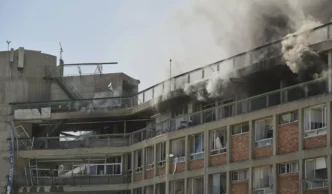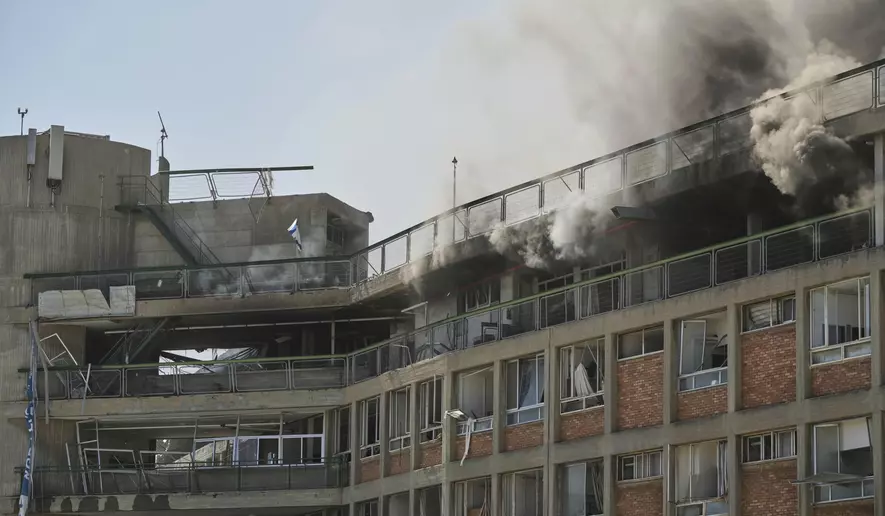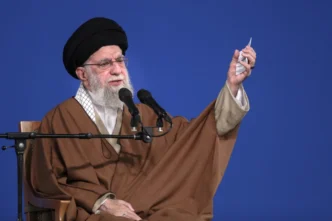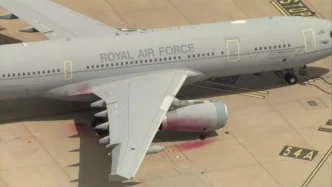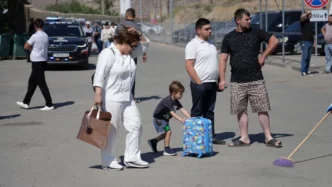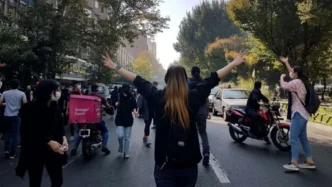Tensions in the Middle East reached a new high on June 19, 2025, after Iranian missile strikes hit southern Israel, damaging Soroka Medical Center in Beersheba and wounding over 240 people. In response, Israel threatened Iran’s Supreme Leader Ayatollah Ali Khamenei and carried out direct strikes on key Iranian nuclear sites.
Hospital Hit in Beersheba, Dozens Injured
Iran launched a barrage of missiles into Israeli territory, damaging residential buildings near Tel Aviv and striking the main hospital in southern Israel, forcing the evacuation of dozens of patients. Smoke was seen rising from Soroka Medical Center, which serves over 1 million residents and houses more than 1,000 beds.
-
240 people were injured in the attacks, with four in serious condition.
-
Over 70 casualties were reported specifically from the hospital strike.
-
The main impact hit an old surgical building that had been recently evacuated.
Despite the severity of the strike, there were no fatalities at the hospital.
Israel Responds: Targeted Strike on Arak Nuclear Reactor
Hours later, Israel’s military launched a retaliatory strike on Iran’s Arak heavy water reactor, a key facility in Iran’s nuclear program. The reactor is designed to produce plutonium, which can be used for nuclear weapons development.
Israel’s Defense Ministry confirmed:
“The strike targeted the component intended for plutonium production, in order to prevent the reactor from being restored and used for nuclear weapons development.”
This marks one of the most direct attacks by Israel on Iran’s nuclear infrastructure to date.
Katz: “Khamenei Should Not Continue to Exist”
In a rare direct threat, Israeli Defense Minister Israel Katz accused Supreme Leader Ali Khamenei of being responsible for the attack and stated:
“The military has been instructed and knows that in order to achieve all of its goals, this man absolutely should not continue to exist.”
This comes amid escalating rhetoric between both nations and growing concerns about an all-out regional war.
Rising Death Toll Across Both Nations
According to a Washington-based Iranian human rights group:
-
At least 639 people have died in Iran since the start of the conflict.
-
263 civilians are among the dead.
-
Over 1,300 Iranians have been injured.
-
In Israel, 24 people have been killed and hundreds wounded.
Iran has fired more than 400 missiles and hundreds of drones at Israel in retaliation for earlier airstrikes that targeted Iranian military sites and nuclear scientists.
Iran Denies Radiation Risk from Arak Strike
Iranian state media claimed the Arak facility posed no radiation danger to surrounding areas. The site was reportedly evacuated prior to the Israeli strike. A state TV reporter near the reactor confirmed there was no damage to civilian areas.
Nuclear Concerns Intensify
The Arak reactor, located 250 kilometers southwest of Tehran, has long been a focus of non-proliferation concerns. Although Iran insists its nuclear program is peaceful, it continues to enrich uranium up to 60%, dangerously close to weapons-grade levels.
Israel remains the only nuclear-armed nation in the Middle East, though it does not publicly acknowledge its arsenal.
Diplomatic Movement Amid the Conflict
Despite growing military tensions, Iran’s Foreign Minister Abbas Araghchi announced he would attend talks in Geneva with European counterparts from the UK, France, Germany, and the EU on Friday, suggesting a potential opening for diplomacy.
U.S. Reaction: Trump Vetoed Assassination Plan
U.S. officials revealed that President Donald Trump had recently vetoed an Israeli plan to assassinate Khamenei. Trump later stated there were “no plans to kill him—at least not for now,” while maintaining strong support for Israel’s military actions.
Hospitals Prepare for Worst
Hospitals across Israel, anticipating missile strikes, have activated emergency plans, moving patients to underground wards and converting parking garages into treatment centers. The country’s subterranean blood bank, built after the 2023 Hamas attacks, has also been mobilized.
